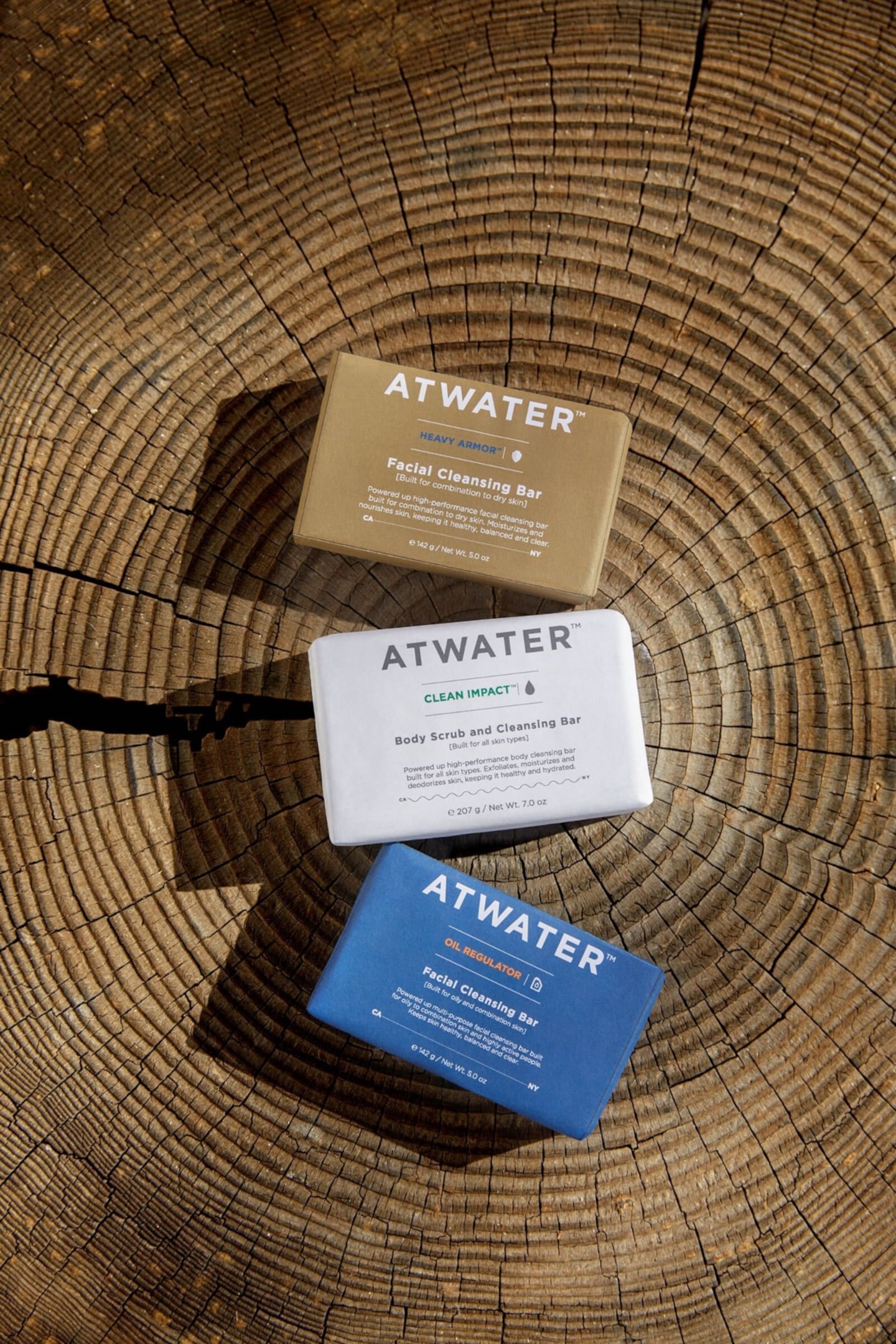
The Business of Fashion
Agenda-setting intelligence, analysis and advice for the global fashion community.

Agenda-setting intelligence, analysis and advice for the global fashion community.

Chris Salgardo believes men are in need of a guiding force when it comes to skin care — and he wants to fill that role.
This week, Salgardo, who ran Kiehl’s for more than a decade, is debuting Atwater, a skin care brand for men. The brand launches with a small suite of products: a facial moisturiser, an eye cream, a face scrub, a lip balm, cleansing bars for face and body and a shaving cream. It will sell on both its own e-commerce site as well as at Nordstrom, both online and in store.
Atwater joins a once-sleepy men’s skin care category that has seen a jolt of product innovation as well as investor and consumer interest in recent years. Once relegated to drug store shelves, a growing number of brands are taking a more-elevated approach, including Reyal Performance starting in 2021, Hetime in 2020 and Caldera + Lab in 2019. Harry’s, which gave razors the direct-to-consumer makeover in the early 2010s, introduced a men’s skin care line in July 2021. As of June 2022, men’s skin care dollar volume in the US was $127 million, up 9 percent year-over-year.
Male celebrities and influencers are also talking more about their skin, in a shift from the last decade, when the biggest names in men’s beauty, including James Charles, Gabriel Zamora and Manny Gutierrez, were focussed more on makeup. Influencer Hyram Yarbro has become a household name, with over 6 million followers on TikTok, and launched his skin care brand, Selfless by Hyram, in 2021, though he isn’t specifically targeting men in his marketing. Emilio Quezada Ibañez and Evan Shinn, host the men’s skin care-focussed podcast Dewy Dudes. John Legend announced plans to launch a skin care line for people of colour earlier this year.
ADVERTISEMENT
What Salgado brings that most of his rivals don’t: decades of experience in the beauty industry. Salgardo started working at a Chanel makeup counter as a teenager in 1986 before transitioning into sales. He spent 10 years with the brand before moving to L’Oréal in 2000, where he headed Kiehl’s from 2006 to 2017. (He stayed on as a brand ambassador until 2018.)
He said he’s positioned Atwater to challenge men’s default approach to skin care, which often still relies on traditional depictions of masculinity, such as heavy, woodsy fragrances. Salgardo said he wants to move away from stereotypical masculine marketing, instead leaning into teaching consumers about products and how they work.
“In women’s, there’s too many brands and too many choices,” said Salgardo. “When you look at the men’s category, it feels like a lot of the same.”
Over the past decade, the rapid emergence of independent beauty brand after independent beauty brand has seen founders turned into influencers, if not outright celebrities. However, Salgardo believes men’s personal care doesn’t yet have an equivalent to Bobbi Brown or Glossier’s Emily Weiss — founders with a public profile who are regarded as experts in the space.
Even with the recent onslaught of new brands and influencers, men’s remain a relatively untapped market for skin care. According to Mintel, 48 percent of men say they’d spend $16 to $31 on anti-aging treatments, and 17 percent of men watch skin care tutorials at home. But still, there’s a massive untapped market: Only 22 percent of male consumers in the US say they use moisturiser, while only 23 use facial cleansers, according to Mintel. And products for men only represent 4 percent of the overall skin care market, according to NPD.
“It starts by creating somebody who can be that source, the trusted person to go to,” said Salgardo.
While Salgardo has nearly 100,000 Instagram followers himself, he wants to build his brand by embracing old-school beauty founder tactics: Getting face time with the consumer, both in-store and online. Salgardo has Nordstrom store visits planned in New York, Los Angeles, Chicago and Orange County, Calif., where he’ll spend the weekend interacting with consumers, showing them how to use the product and explaining how to craft a routine. (It’s part of why he wanted to sell in a department store environment, where there’s a history of consumer interaction at the beauty counter, despite the channel’s waning relevance in recent years.) He’s also planning to host Zoom sessions with consumers where he can take a similar approach virtually.
“I’m gonna make you feel comfortable because you can ask me anything,” he said. “It doesn’t even have to be about Atwater, it can be ‘I get ingrown hairs,’ or ‘My eyebrows look like shit.’ Ask me whatever you like, and I can probably answer it for you because I’ve been in this space for a long time.”
According to an email viewed by The Business of Beauty, the company will be on hiatus while it establishes a sustainable path to return as a new company.
The surfing legend, a vocal opponent of chemical-based sun protection, is launching his own line of natural skincare products this week.
While light on obvious social stunts, the 2024 Met Gala still had its share of trending beauty moments this year.
TikTok has birthed beauty trends with very little staying power. Despite this reality, labels are increasingly using sweet treats like glazed donuts, jelly and gummy bears to sell their products to Gen-Z shoppers.